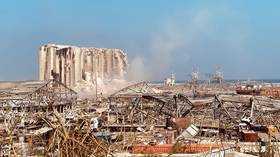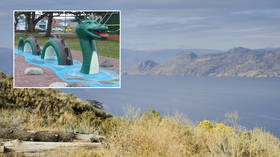200,000+ left homeless in Beirut as city is ‘devastated’ by shock blast, governor explains

Up to 300,000 people in Beirut have been left without a home after the deadly explosion that ripped through a large part of the Lebanese capital on Tuesday, the governor of the city said.
The powerful eruption devastated entire neighborhoods and affected roughly half of the city, Governor Marwan Abboud told local and international media.
With numerous buildings damaged by the blast wave, between 200,000 and 300,000 people in Beirut have been left without a home and will need food, water and shelter. Preliminary estimates place the damage anywhere between $3 billion and $5 billion and “maybe more,” Abboud added.
Also on rt.com WATCH enormous Beirut blast from 15 synchronized camera angles as mystery surrounding its cause persistsThe devastation is a further blow to Lebanon’s already struggling financial situation, as the country is experiencing its worst economic crisis in decades.
Beirut port, where the blast originated, is an important piece of infrastructure, serving as a gateway for traffic from Mediterranean Sea to Lebanon as well as Syria, Jordan and Iraq.
Lebanese officials linked the blast to 2,750 tons of ammonium nitrate, which had been stored at a warehouse in Beirut since 2013, when it was confiscated from an unsafe ship that was reportedly delivering the cargo to Mozambique.
Also on rt.com Death toll from Beirut blast rises to 100, more victims may still be under rubble – Lebanese Red Cross chiefThe chemical compound is widely used as fertilizer as is also a component used in the production of explosives.
At least 100 people have been killed in the disaster, with the death toll expected to rise further.
Think your friends would be interested? Share this story!













